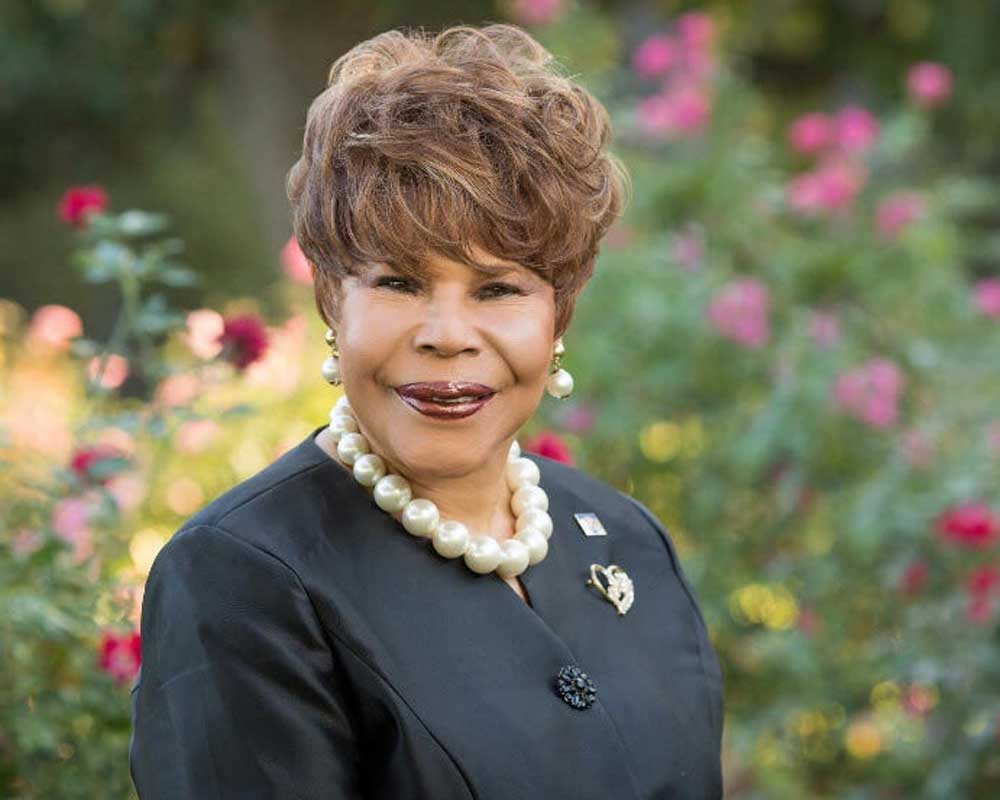Kilgore College OKs tuition, fee increases
Published 11:35 pm Monday, March 9, 2015
With a 6-2 vote, the Kilgore College Board of Trustees increased tuition and fees beginning next fall.
Kilgore College administration recommended — and the board approved — increasing tuition by 6.67 percent, taking it from $30 per credit hour to $32. General education fees will increase by 3.57 percent, up by $1 to $29).
Trending
“For an in-district student, out-of-district student, not counting non-residents, taking 12 hours that $3 will amount to a $36 per semester difference,” Dr. Bill Holda, college president, said. “The other thing to remember is that over 50 percent of our students are taking fewer than 12 hours, and almost 60 percent are on Pell (grants).”
In-district students will pay — with tuition and fees — $61 per semester hour. Out-of-district students will pay $130 per hour.
Tuition for non-residents (students who live outside of Texas) would increase by 2.5 percent. The increased fee will bring the cost to $82, up from $80. With other fees, non-Texan residents will pay $180 per hour.
Administrators also recommended adding or increasing fees for specific courses to help cover some of the cost to offer the courses to students.
“Some cases you could not recover the true course costs,” Holda said. “The fee increases are to try to… get a little closer to the course costs.”
The fee increases vary by course with some courses not seeing any change.
Trending
While a select few — three — courses remain unchanged by continuing to not require a fee, increases among courses range from as low as 20 percent to as much as 172.73 percent for a microbiology and pathology course.
All child development, teaching and education classes will see a decrease of 28.58 percent. Instead of a $35 fee for the year, student will pay a $25 for the year.
Students enrolling in the health science program will also be required to pay a flat $125 deferential tuition fee at registration.
“Once a student is actually admitted into those programs, those programs are not, for the most part, cost effective,” Holda explained. “Many community colleges around the state have put in deferential tuition, and it varies.”
Some colleges Holda looked into charged as much as $400 or $500 per semester for health science program registration.
For Kilgore College, the additional $125 fee per registration could bring the college an additional $153,750 based on registration numbers.
In addition to tuition and fee increases, cost for room and board at the college will increase as well. General long semester board rate will increase by 7.95 percent — from $1,320 to $1,425 — with the summer semester board rate increasing by 8 percent — from $375 to $405. See inset for specific increases by dorm and room style.
“The $2 in tuition would generate about $200,000,” Holda said. “The $1 in [general education] for technology would generate about $100,000, so now you’re up to about $300,000. The course fees that we’re trying to bring the course costs more adequately covered by revenue brings in about $200,000. In this proposal for the health science fee brings in around $153,750, so all total, that’s about $650,000.”
The college received three Job Education Training (JET) grants — each worth about $350,000 — for welding, process technology and industrial maintenance technology. Those three grants are used to purchase “really highly-specialized pieces of equipment.”
“A lot” of equipment, though, will not be subsidized by JET grants, Holda explained.
“Look at it from a big picture standpoint, when you’re looking at the revenue side, and that’s good, but the easiest lever to pull is tuition,” trustee Joe Carrington said. He suggested the college bring ideas for cost savings before the board made a decision.
Holda explained the college’s struggle is early registration begins next month and the tuition and course fees need to be set before registration begins.
“I’m not for a general overhaul of increasing tuition,” Carrington said.
Carrington went on to ask if the administration had factored in the college’s recent declining enrollment. “Other colleges are not in that boat,” he said.
Although enrollment has been declining in recent years, Holda said, the overall enrollment is still more than what it was in 2005.
Vice President of Instruction Mike Turpin addressed the issue, saying he anticipated between 110,000 and 115,000 credit hours for the upcoming fiscal year — approximately level with this year’s enrollment.
“If the oil companies keep laying off, we will have an increase next year,” Board President James Walker said. “We have increases during recessions.”
“That’s my problem I see is we’re looking at down five years of enrollment and another flat line or possible decrease next year, and very easily I can see where you’re talking about added $600,000, $700,000, possibly a millionplus (dollars), depending on facility, and that just sounds like increased budget next year,” trustee Brian Nutt said. “And I’m thinking where do we cut cost? All these sessions I’ve been in, everything’s been more, more, more… We’ve got to find a place to cut costs somewhere, considerably, where the whole bottom line is less than it was the year before, especially with decreased enrollment, instead of finding more ways to spend money and then to increase tuition on top of that (and) put it on the back of the kids.”
In response to Nutt’s concerns, Holda said, the college has cut costs in overload, part time and summer pay will all three categories tied directly to enrollment. Also, he said, last year when.the college funded $300,000 of longevity pay and cost living increases, the total salary budget only increased by $36,000 by eliminating positions and combining positions.
“There was a real effort to do that,” Holda said. “I think that to have added $300,000 in wages while only increasing the salary budget (by) $36,000 is an example of where we did do a lot of cutting.”
Nutt wanted to see cuts in more areas than in the form of retiring faculty and spending less money on new hires, though.
“Just to see the overall tuition going up, I’m not in favor of that,” Nutt said. “I’m in favor of the fee increases. If it costs the student to learn, pay what it costs those parts of it, but from tuition as a whole, I think we can do some substantial cuts to bring that down to take that off the same way as taxes. I’m not in favor of tax increases, (and) I’m not in favor of tuition increases until we see overall reductions.”
After the lengthy discussion, trustee Larry Woodfin made the motion with trustee J. Karol Pruett giving it a second. The motion to increase tuition and fees, effective the fall 2015 semester, passed with a 6-2 vote. Carrington and Nutt were the two dissenting votes on the item.
KC HOUSING RATE CHANGES FOR SCHOOL YEAR 2015-2016
Nolan double…………………………………………. $980, up from $950 (3.16 percent increase)
Nolan premium…………………………………… $1,290, up from $1,250 (3.2 percent increase)
Stark double ………………………………………….. $880, up from $850 (3.53 percent increase)
Quads double …………………………………….. $1,085, up from $1,050 (3.3 percent increase)
Gussie Nell Davis double …………………….. 1,580, up from $1,530 (3.27 percent increase)
___
(c)2015 the Kilgore News Herald (Kilgore, Texas)
Visit the Kilgore News Herald (Kilgore, Texas) at www.kilgorenewsherald.com
Distributed by Tribune Content Agency, LLC







